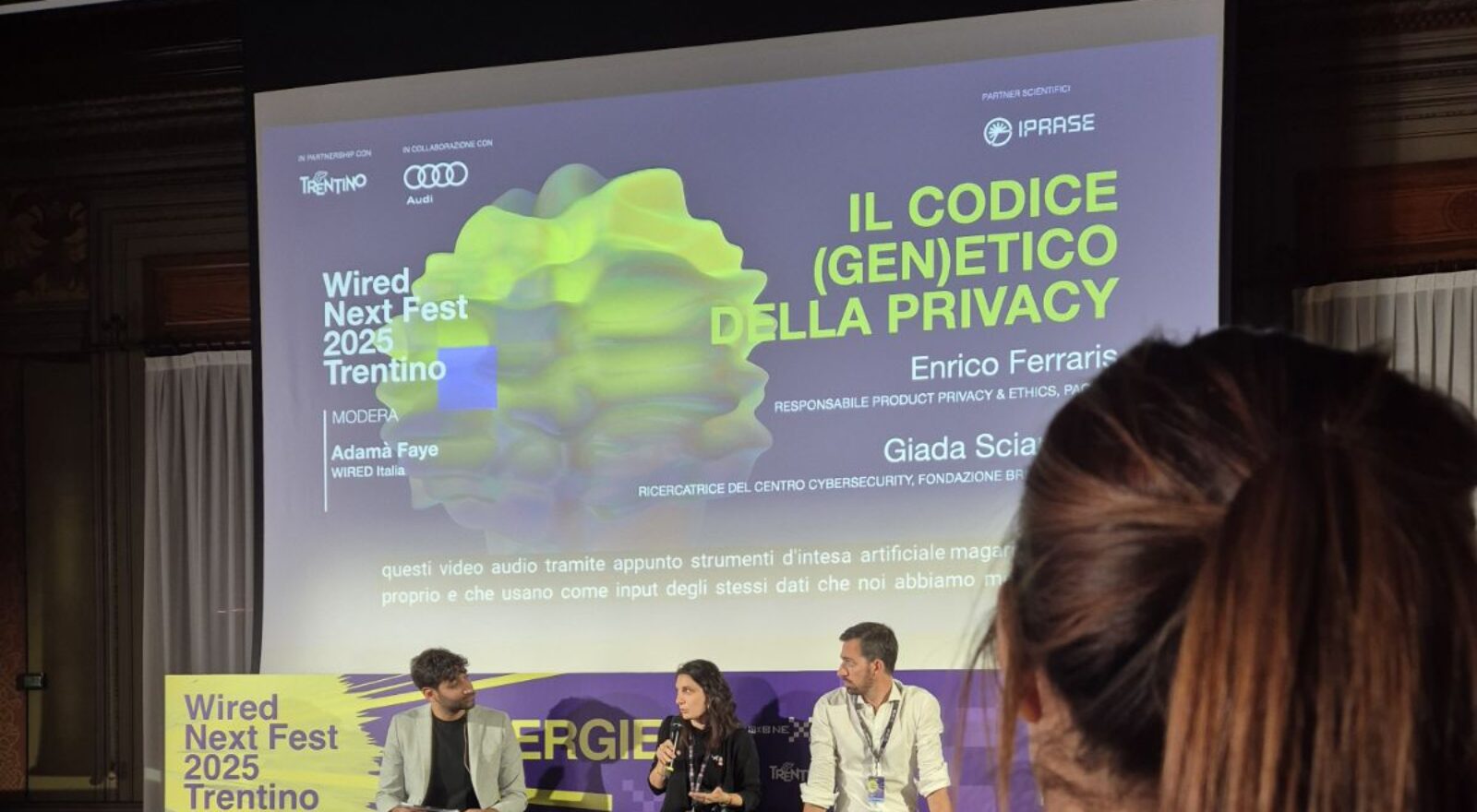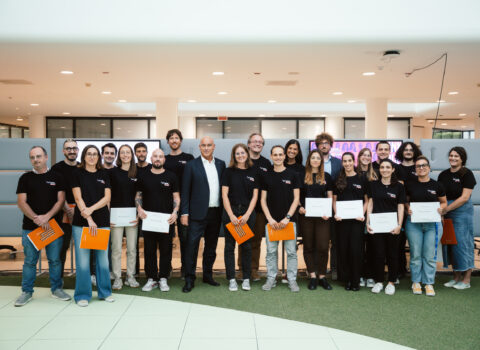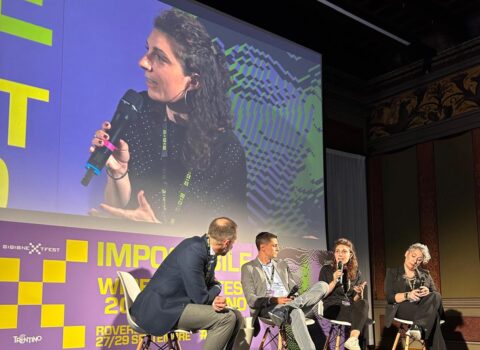
The ethics framework for privacy: How to ensure data security and interoperability for digital citizenship
At Wired Next Fest: A Conversation with Ferraris (PagoPA) and Sciarretta (FBK)
The event held at the Palazzo del Bene in Rovereto focused on the delicate balance between protecting citizens’ data and ensuring its usability by institutions. The discussion, featuring Enrico Ferraris, Head of Product Privacy & Ethics at PagoPA, and Giada Sciarretta, Researcher with the Center forCybersecurity at Fondazione Bruno Kessler (FBK) and Science Ambassador, addressed a key issue in digitization: the ethical and secure management of personal data. In an increasingly connected world, ensuring effective protection of personal—especially sensitive—information, such as that related to payments and daily life, poses a critical challenge.
During the event, the privacy ethics code was examined through the lens of data interoperability. How can we balance the need to ensure information security with the need to make data accessible and usable by institutions—without compromising citizens’ privacy? This question touches not only on advanced technologies but also on fundamental ethical principles necessary to build a responsible and secure digital citizenship.
In his remarks, Enrico Ferraris focused particularly on the concepts of privacy by design and ethics by design. A lawyer specializing in new technology law, Ferraris explored the crucial role of embedding privacy protections into the design of digital systems and platforms—particularly for a public tech company like PagoPA, which handles the personal data of millions of citizens daily. He emphasized the importance of maintaining an ethical approach, especially in the adoption of AI-based solutions. His experience in applying data protection principles at PagoPA—supporting digital infrastructure aimed at simplifying people’s lives—offered valuable insight into how public institutions can work to ensure digital processes are both secure and respectful of citizens’ rights.
Alongside him, Giada Sciarretta, researcher at FBK’s Center for Cybersecurity and Science Ambassador, explored the technological infrastructures required for secure data management, highlighting FBK’s work at the European level. She presented ongoing initiatives that promote transparent data governance, such as the European Digital Identity Wallet, which aims to simplify and secure processes of digital identification and authentication. Drawing from her expertise in designing secure authentication systems and assessing risks associated with digital data, Sciarretta underscored the importance of research and innovation in building an integrated digital ecosystem rooted in trust and information protection.
At the FBK Center for Cybersecurity, Sciarretta primarily focuses on designing and analyzing security solutions based on digital identity, including services like “Entra con CIE” and SPID. Her current research centers on the European Digital Identity Wallet, a cross-national project involving FBK, the Autonomous Province of Trento, PagoPA (as public wallet provider), the Department for Digital Transformation, and the Istituto Poligrafico e Zecca dello Stato (IPZS). Expected to launch between the end of 2026 and early 2027, the wallet will offer a simple, reliable, and secure system for online identification and the sharing of personal attributes and certificates—such as a driver’s license, academic diploma, or bank account details—with public and private service providers.
The event also highlighted the critical role of technological infrastructure in creating secure environments for data sharing. Fondazione Bruno Kessler has emerged as a key player in developing European digital infrastructures, contributing to platforms that foster innovation, cooperation between institutions and businesses, and compliant data integration in line with European regulations—such as the NIS2 directive.
Data protection lies at the heart of all European initiatives, and FBK plays a leading role in ensuring that the solutions developed meet the highest standards for security and privacy. As Sciarretta pointed out, the Digital Identity Wallet project is a concrete example of how technology can be used to make personal data more accessible—yet always protected—giving both citizens and businesses the ability to interact in a safe and transparent digital environment.
In conclusion, the exchange at Wired Next Fest reaffirmed that privacy by design and data security are essential for building a solid and trustworthy digital citizenship. Thanks to ongoing collaboration between experts, institutions, and academia, the future of data management appears to be moving toward greater transparency, stronger protections, and, above all, ethical handling of personal data that respects fundamental rights
***
The WIRED Next Fest Trentino is organized by WIRED Italia in partnership with the Autonomous Province of Trento – Department of Economic Development, Work, Family, University and Research – Trentino Marketing, Trentino Sviluppo, Azienda per il Turismo Rovereto, Vallagarina e Monte Baldo, Municipality of Rovereto.
The Scientific Committee chaired by the Head of Content of WIRED Italia works on the construction of the program, with the participation of the University of Trento, Fondazione Bruno Kessler, Fondazione Edmund Mach, Fondazione Hub Innovazione Trentino, the Provincial Institute for Research and Educational Experimentation – IPRASE and MUSE – Museo delle Scienze.





